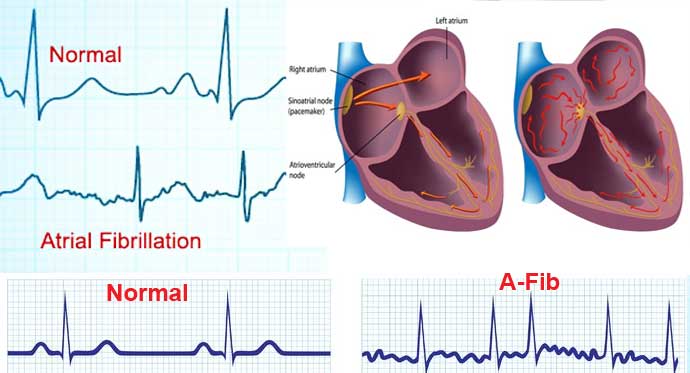Do you or someone you know has AFib (or atrial fibrillation)? If the answer is yes, then read on. The research seems to be settling on what is the best Afib treatment and it is more and more – the surgery and tweaking route than medication, according to Dr. Chauncey Crandall, M.D. , a Yale graduate and is chief of the Cardiac Transplant Program at the world-renowned Palm Beach Cardiovascular Clinic in Palm Beach Gardens, Florida.
According to the U.S. National Heart, Lung, and Blood Institute (NHLBI), AFib affects at least 2.7 million Americans and can lead to stroke, heart failure, and even mental impairment.
People with the condition are typically offered medicines or a surgery called ablation to correct it. Two new trials may answer which of the two treatments works best. Researchers say ablation and medicines perform similarly in protecting AFib patients from stroke, death, and other complications.
Also read: Burnout raises odds for Afib or Atrial Fibrillation
However, ablation may beat out drug therapy over the long term, reducing recurrences of AFib and related hospitalizations for years to come, researchers say.
Patients who got ablation, in which a catheter is used to tweak the heart muscle cells responsible for the arrhythmia, also seemed to have less shortness of breath and fatigue, and better quality of life five years later, compared to those who got drug therapy alone.
To settle the meds-versus-ablation debate, the NHLBI helped conduct two trials, which included more than 2,200 patients treated at 126 sites in the United States, Canada, Asia, and Europe.
Half the patients had ablation and half were put on drug therapy, but could have ablation if their AFib symptoms could not be controlled with medication, something known as “intent to treat.”
In the end, about 27% of the patients who started on drug therapy did end up undergoing ablation. The median follow-up of patients in the trial was about four years.
While the trial did not show that ablation as Afib treatment was superior to drug therapy in reducing deaths and strokes, it did reduce recurrence of atrial fibrillation and hospitalizations. Patients with the most severe symptoms at the start of the study had much greater improvement after ablation than those who initially had mild symptoms, the researchers added.
Similar Posts by The Author:
- Free Broadband for Greater Dandenong Students
- If you are getting out and about, here is the transport alert for 19 April – 25 April
- V/line travellers enjoy the capped fare bonanza
- Pool tragedy: Dharmvir, his father Gurjinder drown trying to save 2YO daughter
- Victorians pay $198.38 million more, thanks to Labor’s IT mismanagement

